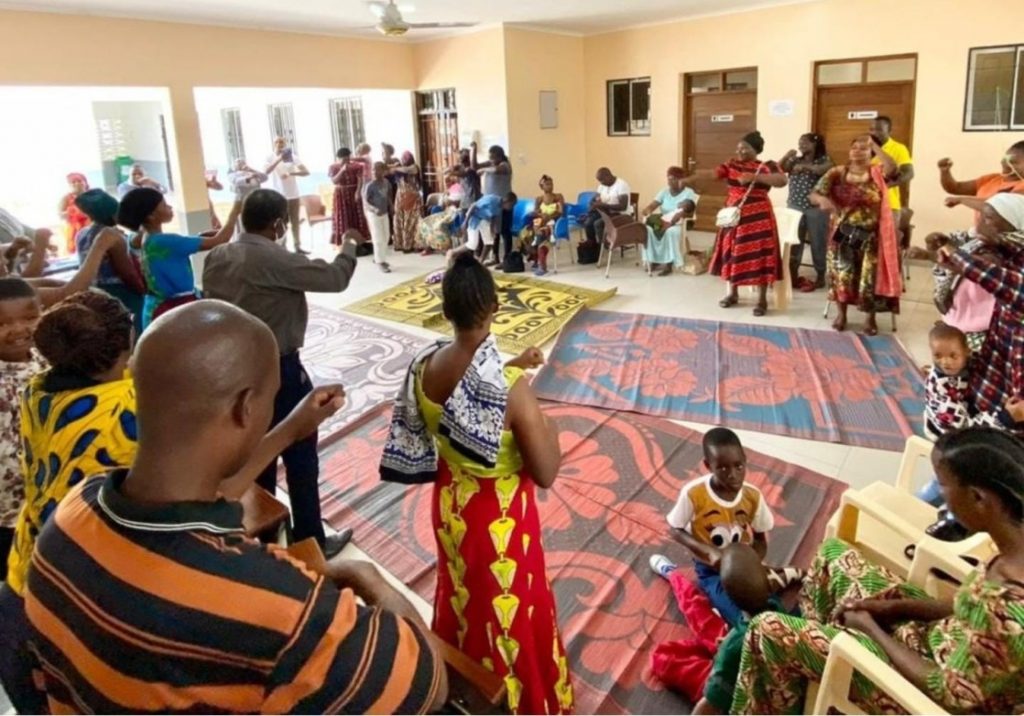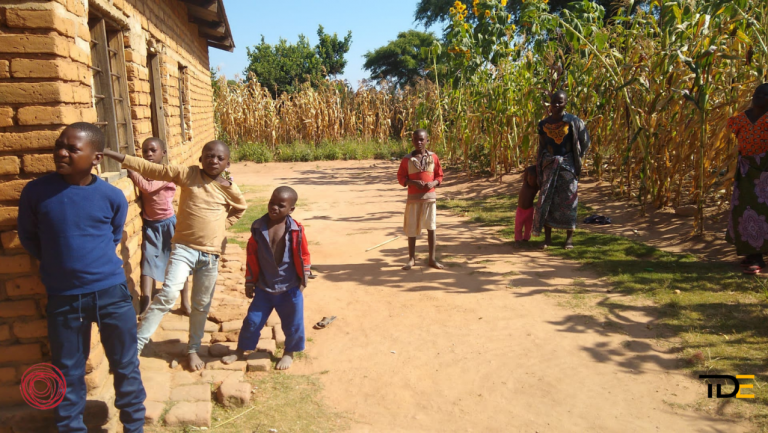Oggi vi raccontiamo una realtà straordinaria, una rete di solidarietà e impegno sociale, che fa delle persone coinvolte una vera famiglia alla quale TDE, nel suo piccolo, ha recentemente dato sostegno nella forma a lei più consona, attraverso la tecnologia.
Comunità Solidali nel Mondo è una ONLUS nata nel 2007 per promuovere i diritti di tutte le donne e gli uomini a sud del mondo. L’associazione crede fermamente nel potenziale che ogni popolo e ogni comunità può esprimere – se messi nelle condizioni di superare i vincoli e le ineguaglianze che ne hanno impedito il cammino: ogni persona, indipendente dal proprio svantaggio sociale, sanitario ed economico, ha davanti a sé un percorso di speranza ed emancipazione possibile e la missione della ONLUS è appunto quello di promuovere la solidarietà, stimolarla, farla apprezzare, metterla a portata di ciascuno e far percepire che ogni piccolo gesto solidale contiene in sé un germe di futuro, che può cambiare la storia, di chi lo riceve e di chi lo compie.

L’associazione opera nel rispetto assoluto dell’autonomia e delle identità locali, collabora con le comunità, le loro rappresentanze e le loro organizzazioni di base e agisce in raccordo con Gondwana – Associazione di Cooperazione e Diplomazia popolare, di cui sostiene fin dalla propria nascita i progetti. Opera principalmente in Africa e in America Latina e nello specifico ha attivato in Tanzania e in Ecuador programmi di cooperazione internazionale a favore di bambini e adolescenti con disabilità.
Il perché la disabilità sia il focus primo della ONLUS soprattutto in Tanzania è semplice: come ci hanno raccontato in un’intervista Vincenzo e Giovanni, volontari del servizio civile che operano principalmente nella metropoli tanzaniana di Dar Es Salaam, la popolazione locale, oltre ad essere afflitta dai noti problemi di malnutrizione e di salute, vive un grave problema sociale rispetto a due condizioni genetiche ereditarie: albinismo e disabilità, causate dai matrimoni tra consanguinei diffusi soprattutto nelle zone rurali più remote del paese. Alcune credenze popolari dell’Africa subsahariana attribuiscono alle parti del corpo degli albini poteri miracolosi per cui gli “stregoni” locali se ne servono per preparare pozioni poi rivendute a caro prezzo; mentre la disabilità è un grande tabù ed è vista dalla comunità locale come una maledizione, tant’è che i bambini disabili vivono praticamente segregati in casa, privati di ogni diritto o discriminati in classi speciali.
La lotta contro l’esclusione sociale dei disabili è un obiettivo che non poteva prescindere dalla riabilitazione medico-sanitaria, per queste ragioni l’associazione ha messo in campo (e lo fa tutt’ora) programmi che si ispirano alla riabilitazione su base comunitaria, una filosofia di intervento secondo la quale la comunità è direttamente coinvolta nel processo riabilitativo. In altre parole, l’intervento riabilitativo non è mirato esclusivamente al disabile, ma valuta tutto il contesto di vita, proprio per ridurre o eliminare le barriere sia architettoniche che sociali.
La finalità è l’autonomia della persona, l’obiettivo è la sua integrazione sociale.

Perché tutto ciò sia possibile, i terapisti occupazionali devono trasferire a chi opera nella comunità conoscenze inerenti alle diverse disabilità e competenze riabilitative, decentrando il più possibile sul territorio le azioni e creando allo stesso tempo maggiori opportunità lavorative. È per questo che nei centri riabilitativi di INUKA nel villaggio di Wanging’omb, Antonia Verna – nella metropoli di Dar Es Salaam – e Mbeya (nota anche come “Simama CBR” – dove Simama vuol dire letteralmente “in piedi” e CBR sta per Community Based Rehabilitation) si portano avanti tantissime iniziative:
- i bambini ricevono terapie riabilitative e vengono seguiti da un team multidisciplinare da un punto di vista motorio, cognitivo, logopedico, nonché dal punto di vista della salute in generale. Se sono impossibilitati a raggiungere il centro ricevono un servizio di assistenza domiciliare;
- laddove possibile i centri sono provvisti di palestre, studi medici, e aule per la formazione;
- le famiglie e i caregiver vengono coinvolti in attività formative per approfondire le tematiche legate alla disabilità;
- i centri stringono collaborazioni sul territorio per essere più capillari e garantire a tutti il diritto a ricevere le cure necessarie;
- si fa educazione inclusiva;
- si organizzano incontri con autorità locali e cittadini per promuoverne il centro e farne conoscere i servizi;
- si dà supporto medico speciale ai casi di epilessi;
- si fa training per donne incinta e per una corretta alimentazione
… e tanto altro ancora.

In questo modo, tutte le attività “parallele” alla riabilitazione vera e propria favoriscono una presa in carico della persona con disabilità da parte del villaggio e questa viene assicurata dalla rete di relazioni che valorizzano le sue abilità e capacità residue. Così le Community Based Rehabilitation danno una risposta concreta ed efficace alle esigenze di vita partecipativa delle persone disabili.

L’obiettivo della ONLUS è quello di realizzare con pazienza, un piccolo passo alla volta, un cambiamento reale, quello culturale, che parta da dentro e che punti sulla sensibilizzazione e sulla responsabilizzazione della comunità, per darle una concreta possibilità di sviluppo autonomo e indipendente. Come ben sappiamo il cambiamento è un processo lungo e importante, difficile da attuare, ma dalle parole di Vincenzo e Giovanni trasuda la passione e l’impegno di chi sa attendere e vuole aiutare veramente, nel modo più giusto:
“Il comportamento fa la differenza! Siamo entrati in punta di piedi e ci siamo fatti accettare. Ci siamo avvicinati alla comunità locale, abbiamo imparato lo swahili e così abbiamo ottenuto la loro fiducia. Abbiamo adattato le idee occidentali a quelle della Tanzania e non ci siamo mai sostituiti a loro; del resto, non dimentichiamo che siamo ospiti qui. Pazienza e cooperazione sono le parole d’ordine del cambiamento!”
Una volta conosciute le persone di questa grande famiglia che diffonde solidarietà nel mondo, abbiamo immediatamente sposato l’obiettivo di dare dignità e speranza alle persone con disabilità e alle loro famiglie a Sud del Mondo e nel pieno rispetto dei nostri valori aziendali di attivismo e impegno sociale abbiamo deciso di agire concretamente, come sempre mettendo la tecnologia al servizio dell’umanità!

Per mano diretta del Presidente dell’Associazione, Michelangelo Chiurchiù, abbiamo fatto recapitare alcuni portatili dotati di un gestionale per la registrazione e l’archiviazione di dati clinici ai centri socio-riabilitativi gestiti dall’arcidiocesi di Mbeya, la regione a sud ovest della Tanzania.
Hardware e software di gestione e archiviazione dati in quel contesto diventano strumenti di straordinaria importanza perché non solo aiutano i volontari e gli operatori locali a creare un sistema di lavoro strutturato, standardizzato e dunque replicabile, ma soprattutto permettono di registrare, monitorare e archiviare i dati relativi ai trattamenti di ogni singolo paziente e di disporre dunque in maniera snella di una storia clinica per ognuno di essi.
Uno dei maggiori problemi dei centri socio-riabilitativi, infatti è proprio la difficoltà di gestire e archiviare dati clinici, considerando in primis i problemi infrastrutturali e poi quelli legati al turnover dei volontari: i centri non sono sempre dotati di una rete internet stabile, i pochi computer a disposizione sono lenti e obsoleti. A questo si aggiunge il fatto che il personale volontario proviene spesso dal servizio civile che ha durata semestrale e ciò significa che le persone cambiano periodicamente e che ognuna di esse utilizza metodi di registrazione dati differenti. Il risultato? Nessun modello di lavoro, storico clinico per paziente poco organizzato, dati mai uniformi, frammentati e spesso illeggibili.
Il nostro obiettivo – di TDE e della ONG insieme – è quello di avviare ufficialmente, a partire da gennaio 2023, delle “procedure di lavoro standard operative” che aiutino i centri a lavorare con metodo, in maniera più veloce e organizzata, grazie a dispositivi e programmi di gran lunga più ottimali; intanto stiamo già lavorando al prossimo step, ovvero il training degli operatori locali.
Chiaramente il sistema è stato pensato per essere assolutamente easy to use e super intuitivo: ad oggi prevede poche funzionalità, ma si prevedono aggiornamenti futuri al fine di rendere il gestionale sempre più completo. Poi chi lo sa … magari un giorno i centri socio-riabilitativi in Tanzania potranno diventare i capofila di un sistema di standardizzazione di lavoro delle sedi operative della ONLUS per favorire in molti altri paesi in via di sviluppo il diritto di cure, uguaglianza e pari opportunità e anche noi ci sentiremo un po’ più utili al mondo.
Da sempre TDE ha posto il benessere della persona al centro della propria mission: in tutti i progetti che scegliamo di portare avanti combiniamo i valori di etica, trasparenza e inclusione e coniughiamo tecnologia, scienza e filantropia. Non vogliamo limitarci a sognare una società più equa, più sostenibile e supportata da tecnologie intelligenti, ci piace trasformare gli ideali in azione efficace.E’ così che possiamo fare la differenza!
Crediamo che in tutte le cose non sia più importante il cosa, ma il come lo si fa, e noi di certo lo abbiamo fatto con amore!
Asante! (Grazie!)
20/05/22
Oriana Torregrossa | Digital & Communication Manager TDE
